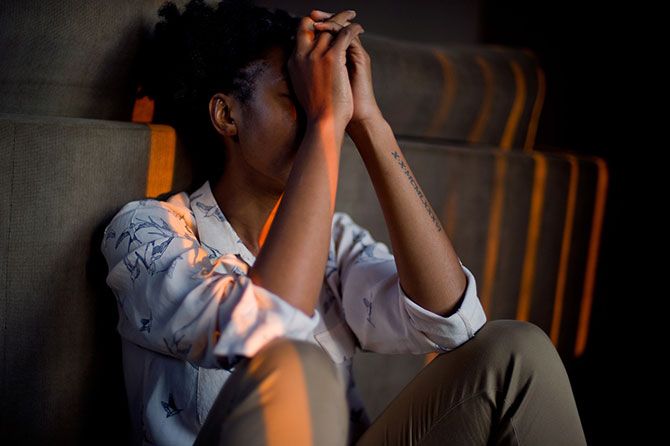Depression is a serious mental illness that afflicts millions of people every year. While it can affect anyone, women are more likely to experience depression than men. This is due in part to the unique challenges that women face in our society. In this blog post, we will discuss some of the warning signs of depression in women. If you or someone you know is experiencing any of these symptoms, please don’t ignore them! There is help available!
Contents
What Is Depression?
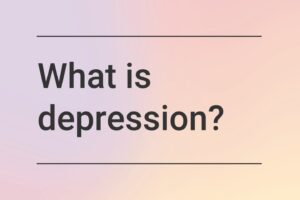 Depression is described as a medical condition that is characterized by feelings of sadness, loss of interest, and low energy levels. It can be caused by a chemical imbalance in the brain, certain medical conditions, or life events. Depression is not a sign of weakness, and it is not something that you can just “snap out of.”
Depression is described as a medical condition that is characterized by feelings of sadness, loss of interest, and low energy levels. It can be caused by a chemical imbalance in the brain, certain medical conditions, or life events. Depression is not a sign of weakness, and it is not something that you can just “snap out of.”
It is a real illness that affects your thoughts, feelings, behavior, and physical health. It is not simply a case of the “ blues ” or feeling down for a couple of days. People usually do not take their depression seriously enough. And when it comes to women with depression, they often suffer in silence because they do not want to be seen as weak or crazy.
According to studies, women are more likely to suffer from depression than men. This is thought to be due to the hormonal changes that women experience, such as during puberty, pregnancy, and menopause. Women are also more likely to experience certain life events that can trigger depression, such as divorce or the death of a loved one.
So, it is important to identify the signs of depression in women and to get help if you are experiencing any of them. There are many different treatments for depression, and it is important to find the one that works best for you.
Signs Of Depression In Women
There are several signs of depression in women that might seem difficult to recognize at first. However, it’s important to be aware of the warning signs so you can get help if you. So it is important for you to look at the list of symptoms below and see if any of them resonate with you.
Changes in Sleeping Patterns
This is one of the most common signs of depression in women. If you find that you are either sleeping too much or not enough, it could be a sign that something is wrong. Not being able to fall asleep or stay asleep can be a sign of depression. So can sleep more than usual. For example, if you find yourself taking afternoon naps or going to bed early and then waking up in the middle of the night, it could be a sign that you are depressed.
Loss of Interest
 If you find that you no longer enjoy activities that you used to love, it could be a sign of depression. This includes things like:
If you find that you no longer enjoy activities that you used to love, it could be a sign of depression. This includes things like:
- not wanting to see friends,
- not wanting to go out,
- and not wanting to participate in activities that you normally enjoy.
It is believed that this loss of interest is due to the fact that depression can cause a chemical imbalance in the brain. This imbalance can make it difficult for you to experience pleasure.
Changes in Appetite
Another sign of depression is changes in appetite. This can manifest itself in two ways: either eating too much or not enough. If you find yourself overeating or undereating, it could be a sign that something is wrong. Overeating can be a sign of comfort eating. This is when you turn to food as a way to make yourself feel better. Undereating can be a sign that you’re not interested in food or that you’re losing weight because of your lack of appetite.
Feel of Hopeless or Helpless
This is one of the common signs of depression in women as they tend to feel like they can’t do anything right or that things will never get better. The feeling of hopelessness and helplessness is often accompanied by thoughts of suicide or self-harm. For example, a woman may think, “I can’t go on like this. It would be better if I just wasn’t here.” If you are experiencing these kinds of thoughts, it’s important to seek help from a mental health professional immediately.
Increased Fatigue
Fatigue is a common sign of depression, and it can be hard to differentiate from just feeling tired. If you’re struggling with fatigue, ask yourself if you’re sleeping well, eating a balanced diet, and getting enough exercise. If you are and you still feel exhausted all the time, it could be a sign that something else is going on. For example, during the depression, people often have difficulty concentrating and may find themselves taking longer to do things than they used to.
More Irritability
It seems very obvious when it comes to signs of depression in women because it is more likely that women will cry over something small or be angered by the littlest things. Men, on the other hand, tend to bottle everything up until they can’t take it anymore. If you’ve been feeling more irritable lately and find yourself getting angrier at things that wouldn’t usually bother you, then it’s time to start paying attention.
Trouble Concentration
This is one of the most common symptoms associated with depression. If you find it hard to focus on anything, or if your concentration is constantly interrupted, this could be a sign that you are depressed. For example, you may have trouble reading or working on tasks that require mental focus. It will further create difficulties in decision-making and will also impact your productivity.
Persistent Physical Signs
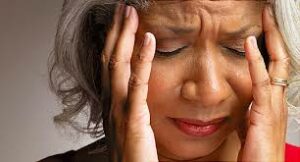 When depression goes unrecognized, it can manifest physically. Women especially may experience fatigue, headaches, stomach problems, and weight changes. Aches and pains are also common. If you’re depressed, you might not want to exercise or take care of yourself the way you usually do. This can lead to more physical symptoms. And those are very persistent, meaning they last a long time and don’t go away easily.
When depression goes unrecognized, it can manifest physically. Women especially may experience fatigue, headaches, stomach problems, and weight changes. Aches and pains are also common. If you’re depressed, you might not want to exercise or take care of yourself the way you usually do. This can lead to more physical symptoms. And those are very persistent, meaning they last a long time and don’t go away easily.
Extreme Mood Swings
This might seem common with women because mood swings and women are often spoken in the same sentence. However, if your mood swings are extreme and you cannot control them, this might be a sign of something more serious. If you’re happy one second and crying the next for no reason, or if you’re constantly angry and lashing out at those around you, this could be a sign that something is wrong and you should seek help.
Poor Judgement
Poor judgment is one of the most common warning signs of depression in women. If you find yourself making poor decisions or engaging in risky behavior, it could be a sign that something is wrong. Although women are typically more prone to depression than men, it is important to remember that anyone can suffer from the condition.
So these are some common signs of depression in women. If you are experiencing any of these symptoms, please don’t ignore them! Talk to your doctor or mental health professional. They can help you get the treatment you need to feel better.
How Do These Signs Differ From Men?
It is important to note that the signs and symptoms of depression in women are often different from those experienced by men. For example, women are more likely to experience fatigue, sleep problems, and changes in appetite. They are also more likely to have feelings of worthlessness and guilt.
It is important to be aware of these differences so that you can get the help you need. There are various reasons why the signs of depression in women are different from the men. Some of the reasons include:
Hormones
Women’s bodies are more sensitive to changes in hormone levels. This can be due to puberty, pregnancy, menopause, and other factors. It is believed that these hormonal changes can contribute to the development of depression. For example, postpartum depression is a type of depression that can occur after having a baby.
Brain chemistry
Depression has been linked to changes in brain chemistry. Women are more likely than men to have lower levels of the neurotransmitter serotonin. This chemical plays an important role in mood and happiness. Low levels of serotonin have been linked to an increased risk of depression.
Stressful life events
 Women are more likely to experience certain types of stressful life events, such as abuse, trauma, and poverty. These experiences can contribute to the development of depression. The stressful events are often cumulative, meaning that they build up over time. This can make it more difficult for women to cope with the stress and can increase their risk of developing depression.
Women are more likely to experience certain types of stressful life events, such as abuse, trauma, and poverty. These experiences can contribute to the development of depression. The stressful events are often cumulative, meaning that they build up over time. This can make it more difficult for women to cope with the stress and can increase their risk of developing depression.
If you are a woman and you are experiencing any of the above symptoms, it is important to seek help. Depression is a serious condition that should not be ignored. There are various treatment options available, and you can get better with the right help.
How Does Depression Affect Women’s Bodies?
There are a variety of ways that depression can affect a woman’s body. Some common complications include:
- Digestive issues
- Fatigue
- Headaches
- Insomnia
- Joint and muscle pain
- Menstrual changes
- Pain during sex
- Lack of social interaction
- Difficulty in relationships
- Use of alcohol and drugs
These are some ways that depression can physically manifest itself, but there are also emotional and mental changes that take place as well. Depression can cause a woman to feel hopeless, worthless, and helpless. According to studies, women are also more likely to ruminate on their negative emotions, which can lead to a spiral of despair.
However, it’s important to remember that depression is a real medical condition that requires treatment. If you are experiencing any of the above symptoms, please reach out to your doctor or mental health professional. You don’t have to go through this alone! Eventually, with the help of professionals and loved ones, you will be on the path to recovery.
Treatment Options For Depression
If your signs are causing you to feel hopeless or you’re having thoughts of harming yourself, please get help immediately by calling a suicide hotline in your country. If you don’t have any suicidal thoughts, but depression is affecting your quality of life, it’s important to seek professional help.
There are many effective treatment options for depression. The most common include:
Psychotherapy
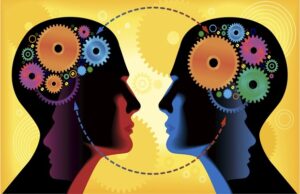 It is also called “talk therapy” and can help you manage your depression by teaching you healthy coping skills. There are different types of psychotherapy, but all aim to help you understand and change the thought patterns that contribute to your depression.
It is also called “talk therapy” and can help you manage your depression by teaching you healthy coping skills. There are different types of psychotherapy, but all aim to help you understand and change the thought patterns that contribute to your depression.
- Cognitive-behavioral therapy (CBT) is one type of psychotherapy that has been proven to be effective in treating depression. CBT focuses on changing the negative thoughts and behaviors that are associated with depression.
- Acceptance and commitment therapy (ACT) is another type of psychotherapy that has been shown to be helpful in treating depression. ACT helps you to accept the things you cannot change and commit to taking action in areas of your life that you can control.
Antidepressant medication
This is one of the most common treatments for depression and it can be very effective. Antidepressants work by altering the levels of certain chemicals in the brain, which can improve mood. However, it can take several weeks for these medications to start working and they may cause side effects such as nausea, headaches, and weight gain.
Some other medications can also be effective in treating depression. These include:
- Mood stabilizers
- Antipsychotics
- Anti-anxiety medications.
It is important to work with a mental health professional to find the right medication for you.
Electroconvulsive therapy
This type of therapy is usually only used as a last resort, but it has been found to be very effective in treating severe depression. If you are considering this type of therapy, make sure to speak with your doctor about the potential risks and side effects. As it works by inducing a seizure, there is a small risk of injury and memory loss. Overall, ECT is a safe and effective treatment for severe depression.
Aromatherapy
This is one of the most popular home remedies for depression. Aromatherapy uses essential oils to improve your mood. The most common oils used are lavender, chamomile, and jasmine. You can add a few drops of these oils to a diffuser or bathtub. For example, you can add a few drops of lavender oil to your bathtub before bedtime.
Aromatherapy is thought to work by stimulating the limbic system, which is the part of the brain that controls emotions. Inhaling essential oils can also help to improve mood and reduce stress. Aromatherapy is generally safe, but it is important to choose quality essential oils and follow the instructions on how to use them.
Herbal methods
There are many different herbs that can be used to help alleviate the symptoms of depression. Some of these include:
- St. John’s Wort
- Ginkgo Biloba
- Valerian Root
In addition to this, you can also add omega-three fatty acids to your diet, as they have been shown to be beneficial for those suffering from depression. You can find these in fish oil supplements or by eating foods such as salmon, mackerel, and sardines.
These are just a few of the many different ways that you can treat depression naturally. If you are suffering from depression, it is important to seek help from a professional.
Self-help
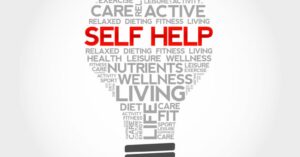 Along with professional help, there are things you can do to help yourself feel better.
Along with professional help, there are things you can do to help yourself feel better.
- Start by accepting that how you’re feeling is valid and try not to judge yourself.
- Remind yourself that it’s temporary and that you will get through this.
- Focus on taking care of yourself, both physically and emotionally.
- Eat a healthy diet, exercise regularly, get enough sleep, and avoid alcohol and drugs.
- Make time for activities that make you happy.
- Connect with other people and talk about how you’re feeling—isolation makes depression worse.
Depression is different for everyone, but these self-help steps can be a starting point to feeling better. If you’re not sure where to start, talk to a mental health professional. They can help you develop a plan for dealing with depression. You don’t have to go through this alone—reach out for help if you need it.
You and your doctor can work together to find the best treatment option for you. If one treatment doesn’t seem to be working, don’t give up hope! There are many options available and with perseverance, you will find the one that works for you.
Conclusion
To conclude, signs of depression in women can be physical, behavioral, or emotional. If you are experiencing any of these symptoms, it is important to reach out for help. Depression is a serious condition that should not be ignored. In fact, the stigma around mental health should be broken and more people should seek help.
Therefore if you think you may be depressed, please reach out to a mental health professional or your primary care physician. And with this step, you will be on your way to healing.
For more information and guidance you can contact Therapy Mantra. The team of experts will help you every step of the way. And provide you with convenient online therapy-related services around the globe. So that you can get the help you need, without leaving the comfort of your home. So, do not wait longer and book an online therapy session today or download our free Android or iOS app!
